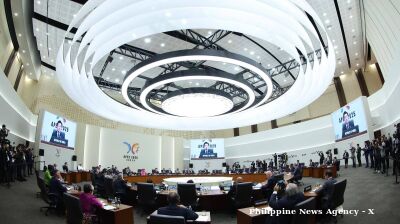Ukrainian MPs have voted to approve a bill to restrict the influence of oligarchs on Ukrainian political life. The bill forbids oligarchs to make contributions in support of political parties and to participate in large-scale privatisations, and forces them to disclose their assets.
The parliamentary vote demonstrates the belated determination of President Volodymyr Zelensky to take on the country's most powerful businessmen, including his former patron Ihor Kolomoisky.
The overwhelming majority of votes for the bill was given by the presidential party Servant of the People, with 229; other votes came from For the Future, 18; Trust, 15; and Voice, 11. However, 23 MPs from the party Eurosolidarity and 20 from OPZZh were opposed.
The vote came the day after an assassination attempt against one of the president’s top aides, which some people claimed was a warning shot against the bill.
According to the adopted law, the oligarchs will be named by the National Security and Defence Council at the request of the Cabinet of Ministers, the security service, the national bank, a member of the National Security and Defence Council or the Antimonopoly Committee. The decision of the National Security and Defence Council is put into effect by the president. It enters into force after its official publication.
An oligarch is a person who has significant economic and political weight in public life. An oligarch will be a person who meets at least three of the criteria prescribed by law:
-
participates in political life;
-
has a significant impact on the media;
-
is the ultimate beneficial owner of an entity that holds a monopoly position in the market and maintains or strengthens such a position for a consecutive year;
-
the confirmed value of that person's assets (and business entities of which he is a beneficiary) exceeds UAH2.3bn ($49mn)
The National Security and Defence Council, which in March “identified 13 oligarchs,” will also take care of the register of oligarchs.The register will indicate the data on the oligarch, his assets and the list of politicians in whose work he is involved.
If a person is on the list of oligarchs, a number of restrictions are applied to him. In particular, it will be forbidden to stand for public office, make contributions in support of political parties and participate in large-scale privatisation. Also, persons from this register will have to submit a declaration of income.
In addition, the law introduces the concept of "declaration of contacts". The oligarchs would be obliged to submit a list of all civil servants they or their representative have been in contact with. At the same time, it will be possible not to file such a declaration if the meeting with the oligarch was on television, in a court hearing, or at events initiated by public authorities. The law also obliges oligarchs to report before a meeting with civil servants that they are included in the Register of Oligarchs.
Relevant requirements are also provided for the submission of a "declaration of contacts". If a person does not file such a declaration, he or she may be held politically or disciplinary liable.
The law shall enter into force on the day following the day of its publication and shall enter into force six months after its entry into force. The law expires 10 years after its entry into force.
News

US–China soybean sales restart
According to Scott Bessent, US Treasury Secretary, the agreement marks a significant step towards restoring normalcy for American farmers.

Russia faces $50bn annual losses from oil sanctions as Lukoil exits international assets
Russia is expected to lose at least $50bn annually due to oil-related sanctions, as Moscow’s largest private oil producer Lukoil agrees to sell its international assets and Germany considers nationalising operations owned by state-run Rosneft.

Chicken and chips in Seoul - for Nvidia, Samsung and Hyundai
In a low-key fried chicken shop in southern Seoul, the leaders of Nvidia, Samsung Electronics and Hyundai Motor held an informal meeting on the evening of October 30.

Presidents Lee and Xi begin diplomatic chapter at APEC summit
President Lee, who is chairing the first session of the summit at the Hwabaek International Convention Centre, stood at the entrance to personally welcome participants. President Xi reached the venue at approximately 10:02.



